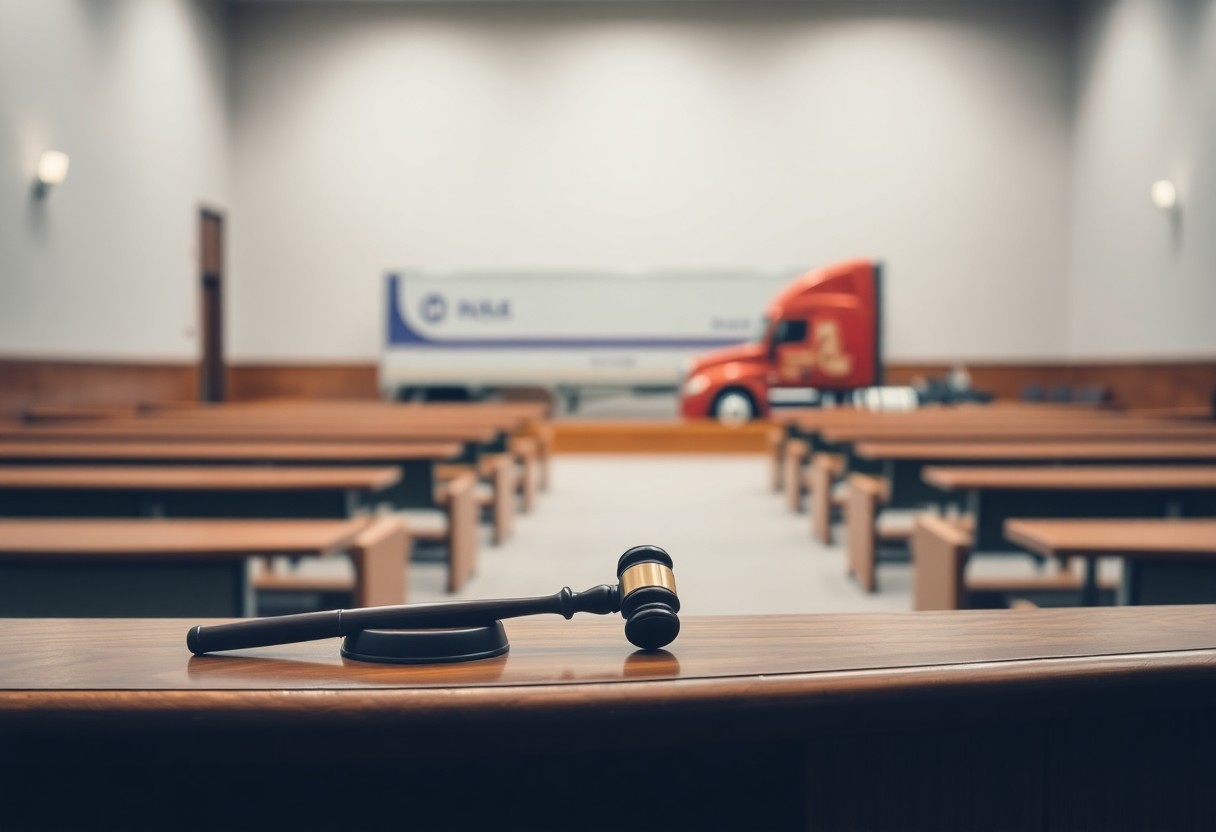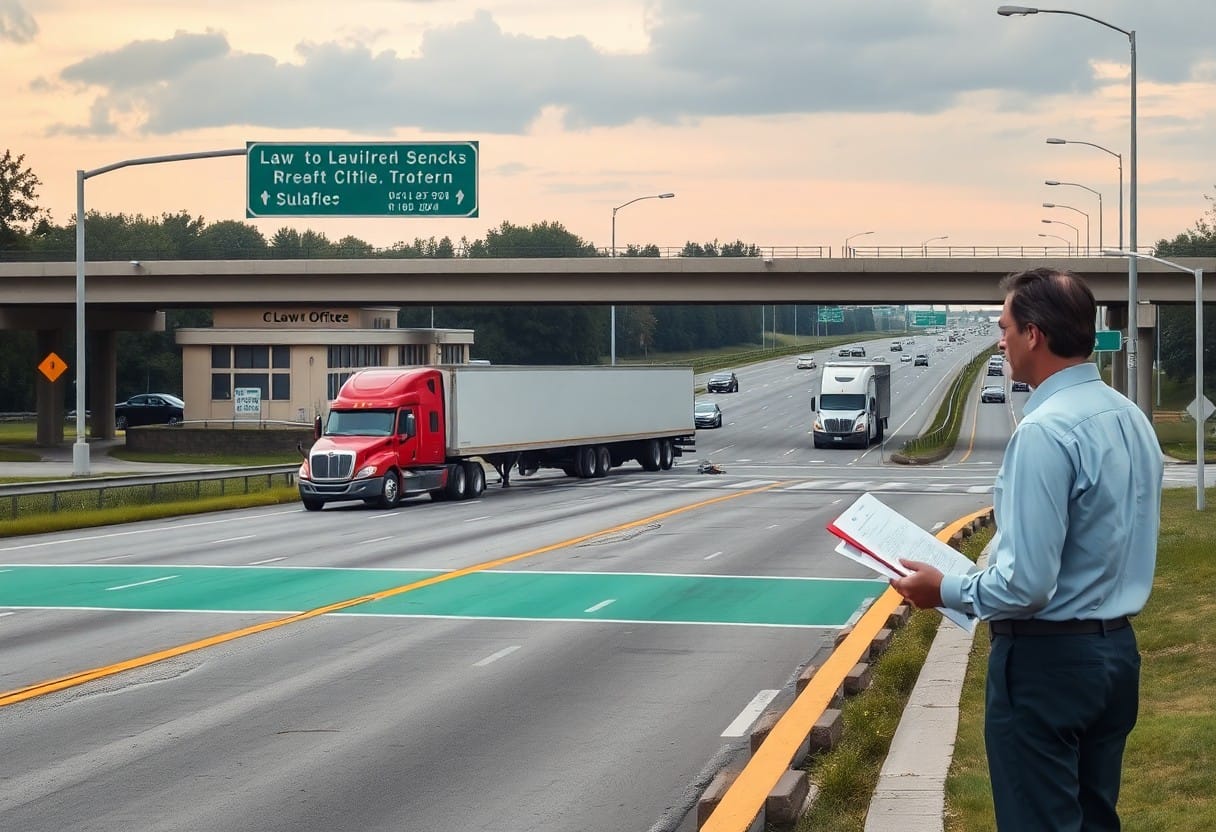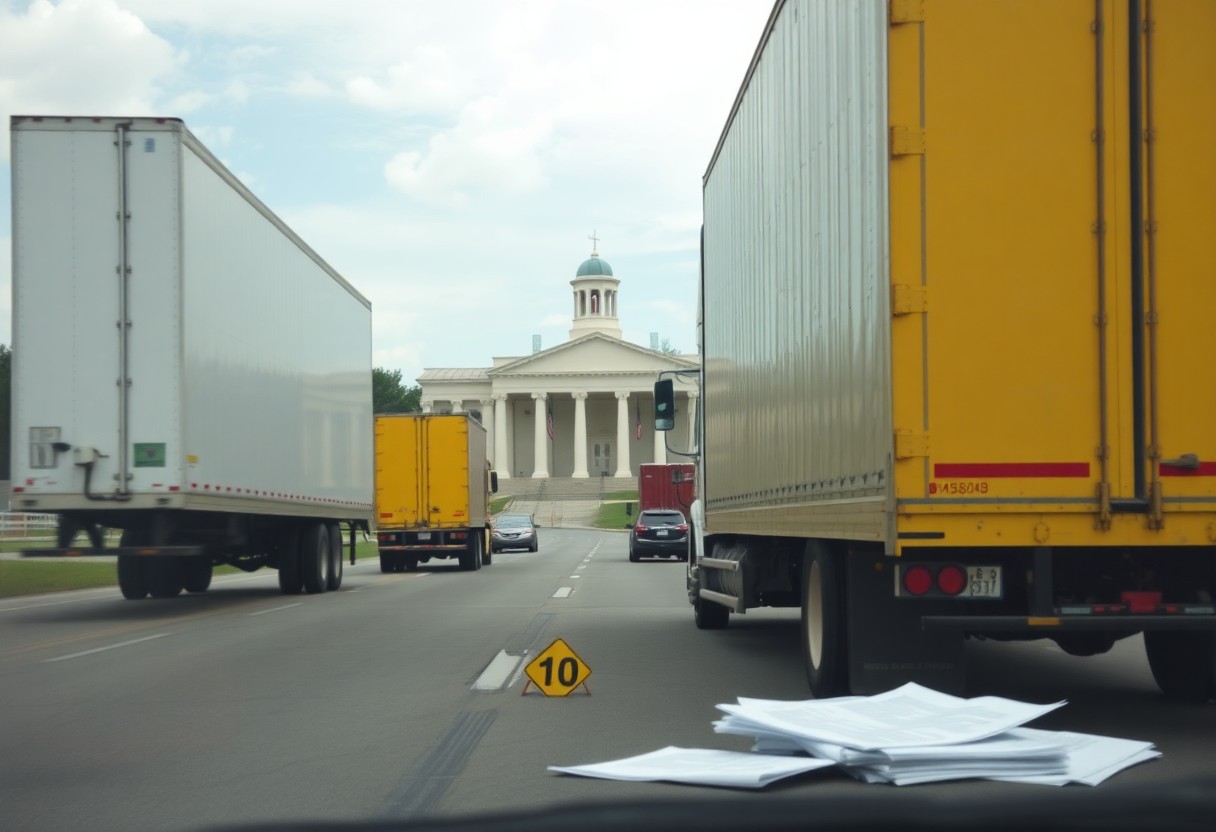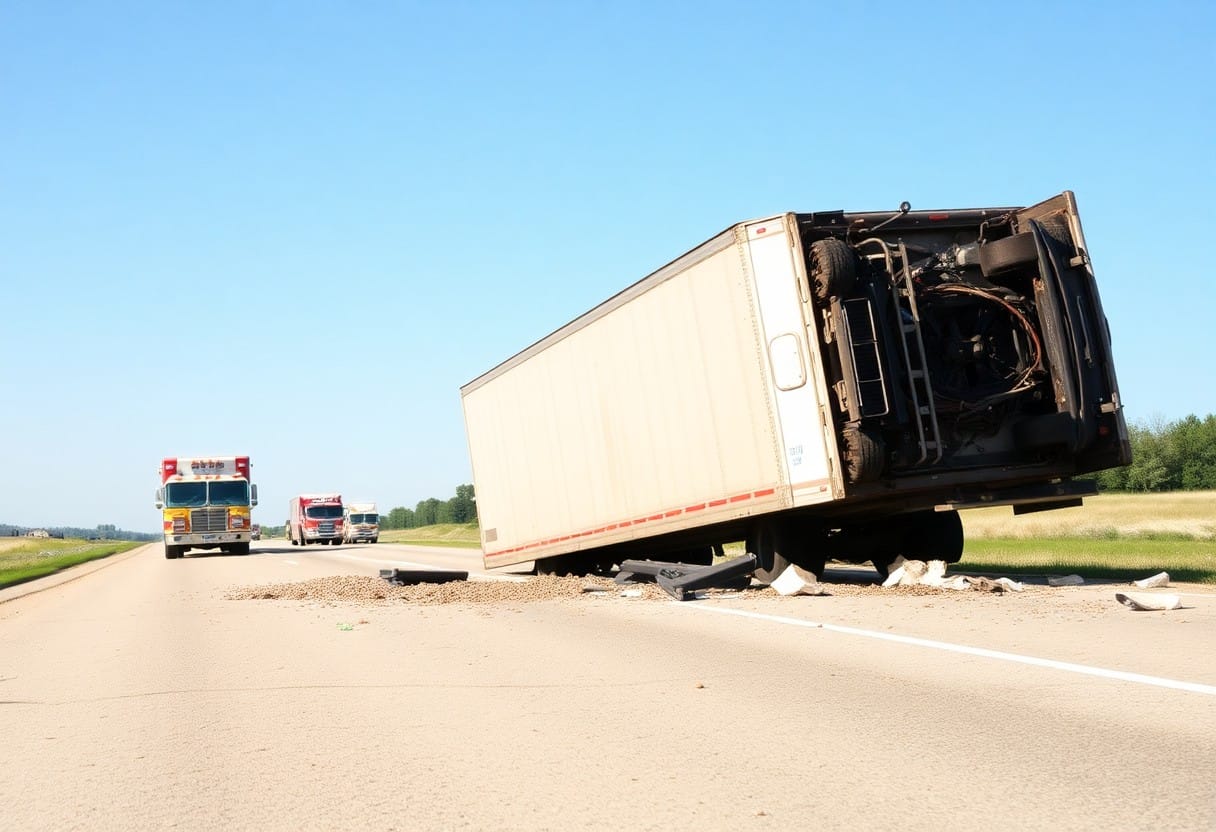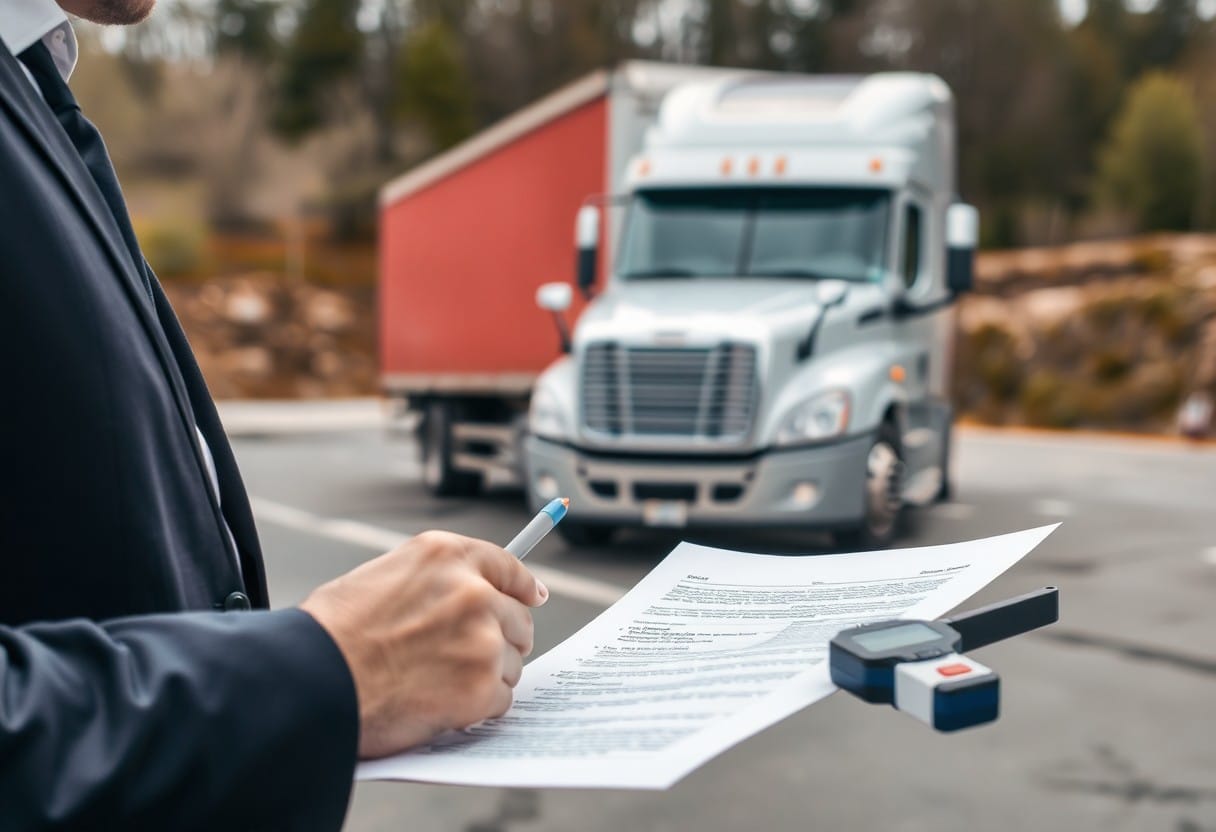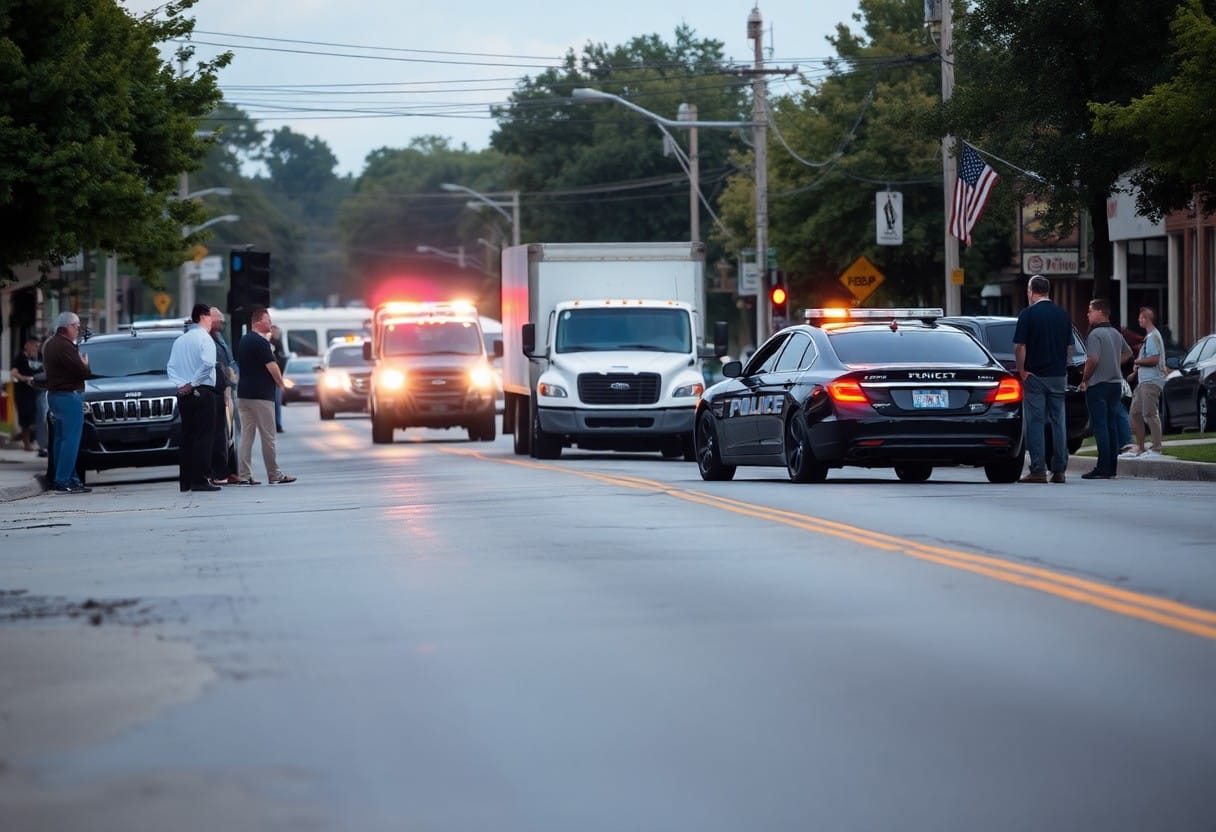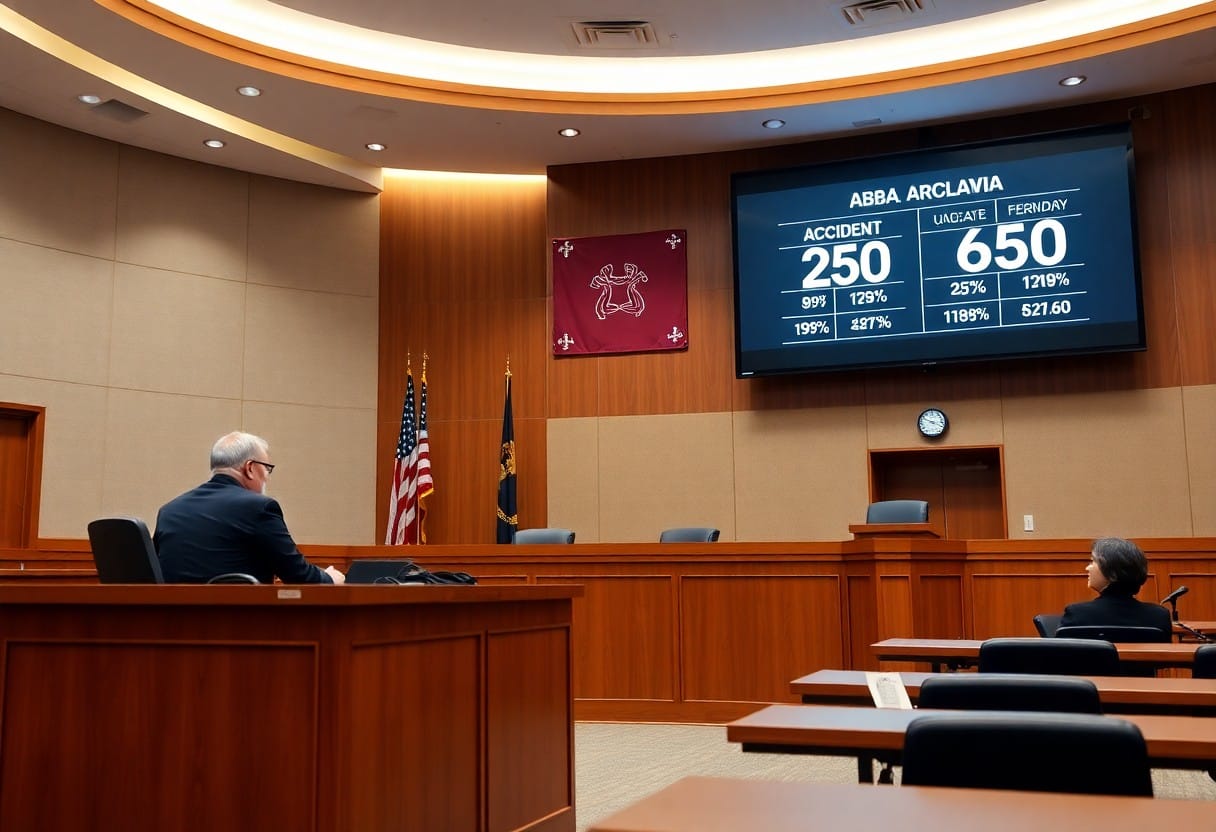Many people underestimate the tactics employed by trucking companies after a crash. Those companies often prioritize protecting their interests and may shift the blame to you, regardless of the circumstances. This strategy can have serious implications for your legal rights and could affect your chances of receiving compensation for damages. By understanding why and how they operate, you can better equip yourself in these situations and guard your interests when faced with the aftermath of a trucking accident.
Understanding Liability in Truck Accidents
A truck accident can lead to complex legal battles over liability. Understanding who is at fault is crucial as it directly impacts your ability to recover damages. Liability may involve multiple parties, including the truck driver, the trucking company, or even vehicle manufacturers. Each party’s actions before, during, and after the accident are evaluated to determine responsibility for the crash.
The Role of Negligence
An important factor in determining liability is negligence. You must show that the truck driver or trucking company failed to act with reasonable care, leading to the accident. Common forms of negligence include distracted driving, speeding, and inadequate vehicle maintenance. Your understanding of these negligent behaviors can significantly influence the outcome of your case.
Shared Fault and Comparative Negligence
At times, accidents may involve shared fault, where both you and the truck driver are found partially to blame. This concept is governed by comparative negligence laws, which allow you to recover damages even if you share some fault. Understanding how these laws work can help you navigate your legal options effectively.
| Definition | The legal principle where fault is distributed among parties involved in an accident. |
| Impact on Compensation | Your compensation may be reduced by your percentage of fault. |
Understanding shared fault is crucial when it comes to truck accidents. You need to be aware that if you are found to be partially at fault, the amount you can claim for damages will be adjusted accordingly. For instance, if you have 20% fault, your potential recoverable damages will be reduced by that percentage. This complex dynamic underscores the importance of gathering evidence and potentially working with an attorney to establish the facts and protect your rights throughout the process.
| Evidence Collection | Gathering accident reports and witness statements is vital for establishing fault. |
| Legal Representation | Having an experienced attorney can help you navigate liability claims effectively. |
Common Tactics Used by Trucking Companies
You may find that trucking companies employ various tactics to shift blame onto you after a crash. Understanding these methods not only empowers you but also prepares you for potential disputes in the aftermath of an accident. Their strategies often include disputing imperative facts and overemphasizing your actions, which can significantly impact the outcome of your case.
Disputing Essential Facts
Essential details are often at the center of disputes following a crash. Trucking companies might claim inaccuracies about the circumstances, such as the speed of vehicles, visibility conditions, or even the sequence of events. By questioning these facts, they aim to create doubt surrounding your version of the events, potentially undermining your credibility.
Overemphasizing Your Actions
Any behavior you exhibited during the incident may be exaggerated by the trucking company to divert fault onto you. They might highlight minor infractions or decisions that seemed reasonable under the circumstances to present you as the more reckless party.
Even subtle actions, such as changing lanes without signaling or driving slightly above the speed limit, can be elevated to suggest that you were primarily responsible for the crash. This tactic not only distorts the reality of the situation but also places undue liability on you, which can adversely affect your claim. Be aware that even typical driving maneuvers can be scrutinized in an attempt to shift blame and protect the trucking company’s interests.
The Importance of Evidence
Some people underestimate the significance of gathering evidence after a truck crash. Without solid evidence, it becomes your word against the trucking company, giving them leverage to deflect blame onto you. Ensuring that you document every detail can be pivotal in establishing fault and protecting your rights.
Gathering Relevant Data
Behind every truck accident, various elements need thorough examination. Collecting police reports, medical records, and photographs from the scene can solidify your case. Additionally, ensuring that you have documentation of all interactions with trucking companies is necessary for building a comprehensive account of events.
Witness Accounts and Their Impact
About witness statements can significantly influence the outcome of your case. Eyewitnesses can provide objective accounts that may counteract the trucking company’s narrative, establishing credibility in your favor.
At the scene of an accident, witness accounts can be pivotal in shaping legal conclusions. Not only can they affirm your version of events, but they can also highlight negligence or unsafe practices by the truck driver. Obtaining contact information and statements from witnesses promptly can bolster your position, helping to ensure that you are not unjustly blamed for the crash.
Legal Protections for Accident Victims
Unlike many other accidents, victims of trucking collisions benefit from specific legal protections that can assist them in seeking compensation. These laws are designed to ensure that you have the necessary support to recover from your injuries and damages. Trucking companies often attempt to divert blame, but knowing your rights can empower you to hold them accountable for their negligence.
Personal Injury Claims
The process of filing a personal injury claim after a truck accident is imperative to obtaining the compensation you deserve. This claim can cover medical expenses, lost wages, and pain and suffering resulting from the accident. It’s imperative to gather all relevant evidence and consult with an attorney to strengthen your case against the trucking company.
The Role of Insurance in Trucking Accidents
Protections offered by insurance play a significant role in trucking accidents, as companies are required to maintain minimum liability coverage. In the event of an accident, this insurance is meant to cover damages and compensation for victims like you. However, trucking companies often try to minimize payouts by disputing the extent of damages or blaming you for the accident.
To effectively navigate the complexities of insurance in trucking accidents, it’s vital to understand that insurance adjusters may attempt to downplay your injuries or delay payouts in an effort to protect the company’s bottom line. You should be prepared to share comprehensive documentation that illustrates your injuries and their impact on your life. When dealing with accidents involving trucks, it’s imperative to prioritize your safety and remain informed to ensure that you receive the compensation you are entitled to.
How to Protect Yourself After a Crash
Now that the initial shock of a crash has passed, it’s important to take steps to protect yourself. Gather as much information as possible from the scene of the accident and ensure your well-being is addressed before discussing fault or liability with anyone. Being proactive can safeguard your rights and finances in the long run.
Documenting the Scene
An effective way to protect yourself after a crash is by meticulously documenting the scene. Take photos of the vehicles involved, the surrounding area, and any visible damage or injuries. Ensure you collect witness statements and contact information, as these details can be invaluable in establishing the facts later on.
Seeking Legal Counsel
An experienced attorney can provide you with crucial guidance after a crash involving a trucking company. They can evaluate your case, help you understand your rights, and prepare you for any challenges that may arise.
Yourself, as a victim, may feel overwhelmed navigating the aftermath of a truck accident. Engaging a specialized attorney can protect your interests and strengthen your position. They can advise you on how to gather evidence effectively and analyze potential liabilities. Not only can they help you combat any false claims of fault, but they can also negotiate with insurance companies to ensure you receive fair compensation for your injuries and losses. Ensuring you have the right legal representation can greatly enhance your chances of a favorable outcome.
Case Studies and Real-Life Examples
All trucking incidents provide valuable insights. Below are significant case studies showcasing how trucking companies have attempted to shift responsibility onto victims:
- Case 1: An accident involving a delivery truck resulted in a $500,000 claim where the company claimed the driver’s error.
- Case 2: A multi-vehicle pile-up led to a $1 million payout. The trucking firm argued faulty brakes contributed to the crash.
- Case 3: A rear-end collision resulted in a $750,000 settlement, with the carrier alleging the victim’s sudden stop caused the accident.
Notable Cases in Millbrook
About a recent incident in Millbrook, a reputable trucking firm tried to fault the victim after a serious collision. The victim’s testimony countered the trucking company’s claims, highlighting the need for a thorough investigation into such cases to prevent unfair blame.
Lessons Learned from Each Case
Case reviews reveal significant patterns in how trucking companies operate post-crash.
Hence, understanding the tactics used by such companies can help you navigate your case effectively. For instance, be aware of how they might utilize technical jargon to obfuscate the truth or push blame onto you. Knowing their strategies ensures you are prepared to provide strong evidence supporting your side. Always gather vital details like witness testimonies and police reports to bolster your position. By documenting everything, you can protect your rights and hold trucking companies accountable for their actions.
Summing up
The reasons trucking companies in Millbrook may attempt to blame you for a crash often stem from their desire to protect their financial interests and reputations. They might use tactics such as distorted narratives or selective evidence to shift liability away from their drivers and vehicles. Understanding this behavior allows you to better navigate the aftermath of an accident and gather the necessary documentation to defend your case. Staying informed about your rights and responsibilities can empower you during this challenging time.



